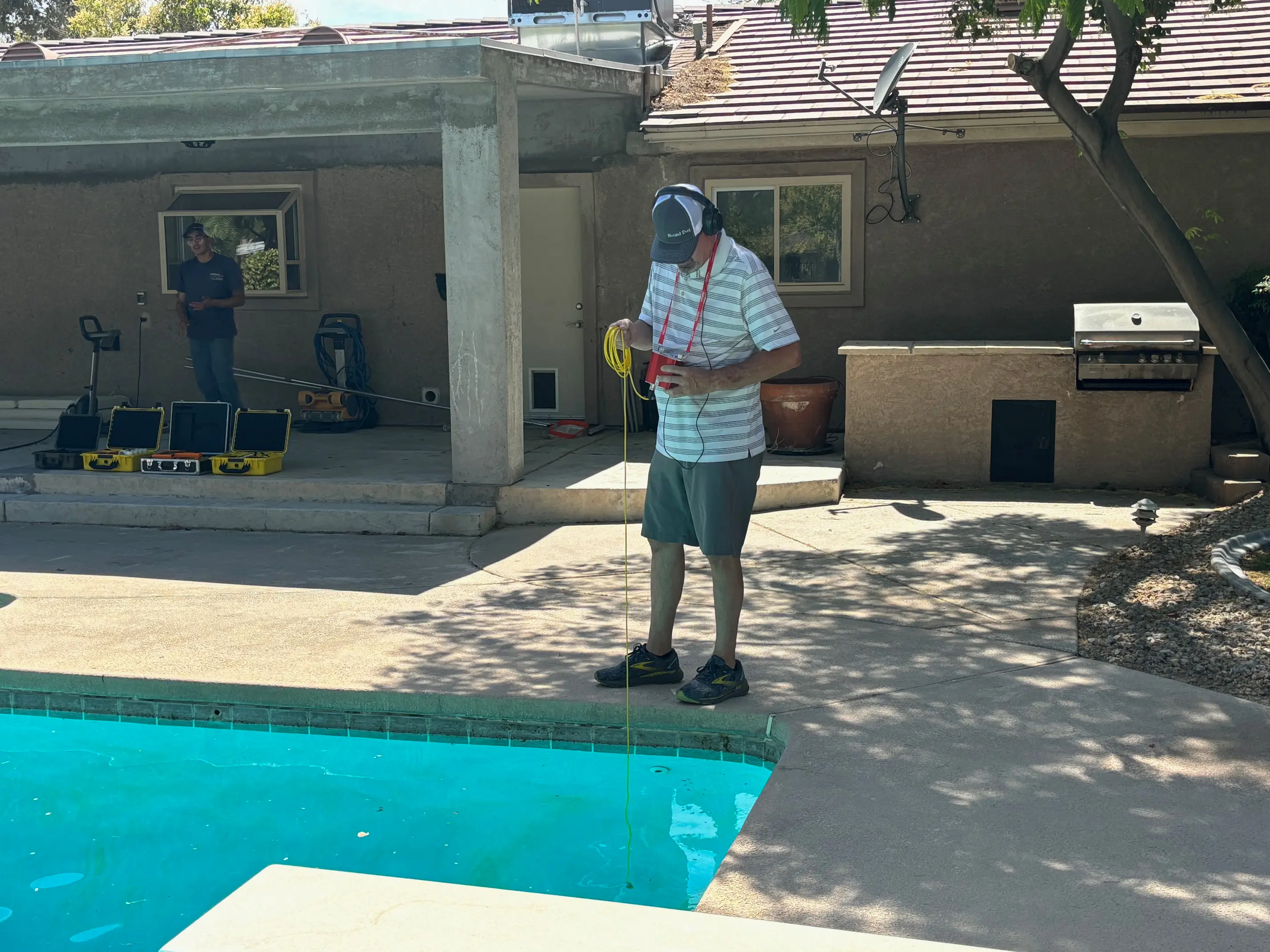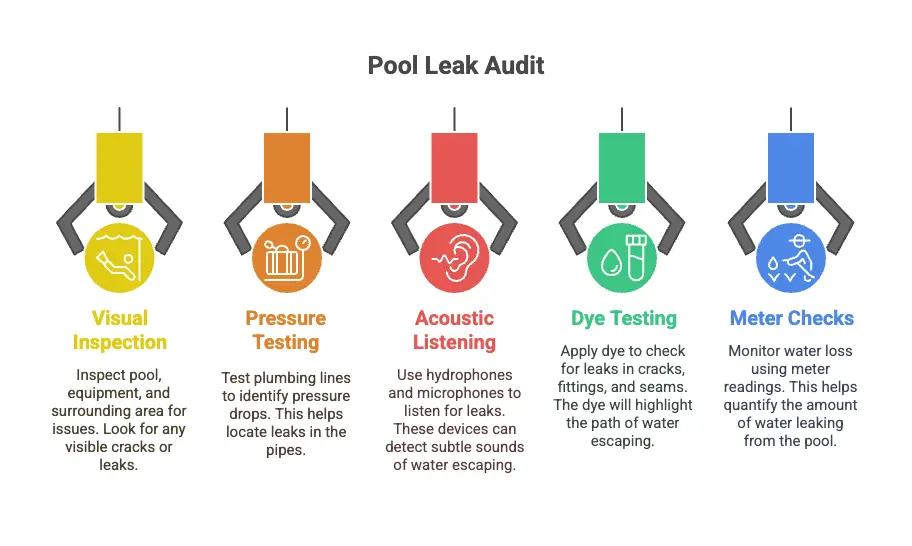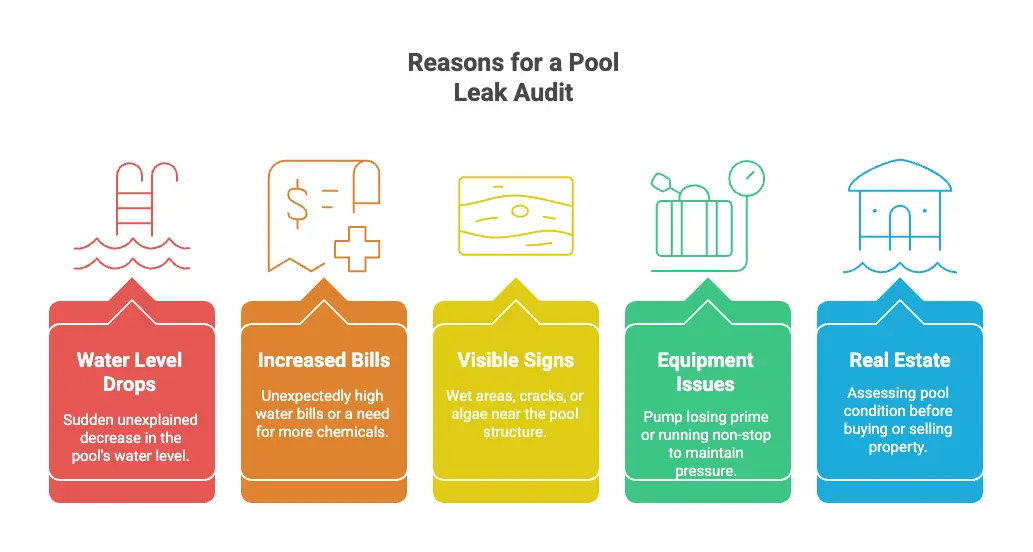Why Your Pool Needs a Professional Leak Audit—Not Just a Quick Fix

A swimming pool is a major investment and the centerpiece of many Las Vegas backyards. But even the most well-maintained pools can develop leaks—sometimes in places you’d never expect. While a quick patch might seem like an easy solution, only a professional pool leak audit can truly protect your pool, your property, and your wallet. At Hound Dog Leak Detection, we use Leaktronics’ industry-leading leak detection equipment to find and fix leaks quickly and accurately. This article explains why a thorough pool leak audit is essential, what’s involved, and how it saves you money and stress in the long run.
A pool leak audit is a comprehensive inspection of your swimming pool, pool plumbing, and equipment to find leaks—no matter how small or hidden. Unlike a quick fix that only addresses the obvious symptoms, a professional audit uses specialized leak detection methods to assess the entire pool system, ensuring every potential leak is identified and repaired.
This process is crucial for both residential and commercial pools in Las Vegas, where water efficiency and property value matter.

Not all leaks are visible. Some are buried underground in pool plumbing, hidden behind pool walls, or masked by normal evaporation. Even a minor leak can waste thousands of gallons of water and go unnoticed for weeks. Pool leaks can also mimic other issues, like a faulty valve or a plumbing leak elsewhere in your home.
Professional leak detection services use advanced diagnostics, such as pressure testing and hydrophones, to pinpoint the exact location of the leak—saving you from unnecessary digging or guesswork.
Ignoring a pool leak can lead to:
A small leak can quickly escalate into a major problem, making early detection and repair critical for pool owners.
A professional pool leak audit includes:
Technicians isolate each section of the pool’s plumbing system, ensuring leaks are found in both the pool structure and underground pipes. This thorough approach means you get a complete picture of your pool’s condition—not just a temporary fix.
Modern leak detection relies on a range of advanced tools:
These non-invasive techniques allow professionals to find leaks quickly and accurately, with minimal disruption to your pool or yard.
DIY leak fixes—like patching a crack or replacing an o-ring—might seem cost-effective, but they rarely address the root cause. Without a full audit, you risk missing hidden leaks or making unnecessary repairs. In some cases, DIY attempts can even cause more damage, leading to higher repair costs later.
A professional pool leak audit ensures that every leak is found and fixed, protecting your investment and your peace of mind.
A professional leak audit saves money by:
By investing in a thorough inspection, you avoid the cycle of repeated patch jobs and escalating repair costs.
Leaks can occur in many places, including:
A professional audit checks all these areas, ensuring no leak goes undetected.
During a pool leak audit, you can expect:
You’ll also receive expert advice on maintenance and water efficiency to help prevent future leaks.
Schedule a professional pool leak audit if you notice:
Regular audits—at least once a year—are also recommended for optimal operation and peace of mind.

Don’t settle for a quick fix—protect your pool and your investment with a professional leak audit.
July 31, 2025